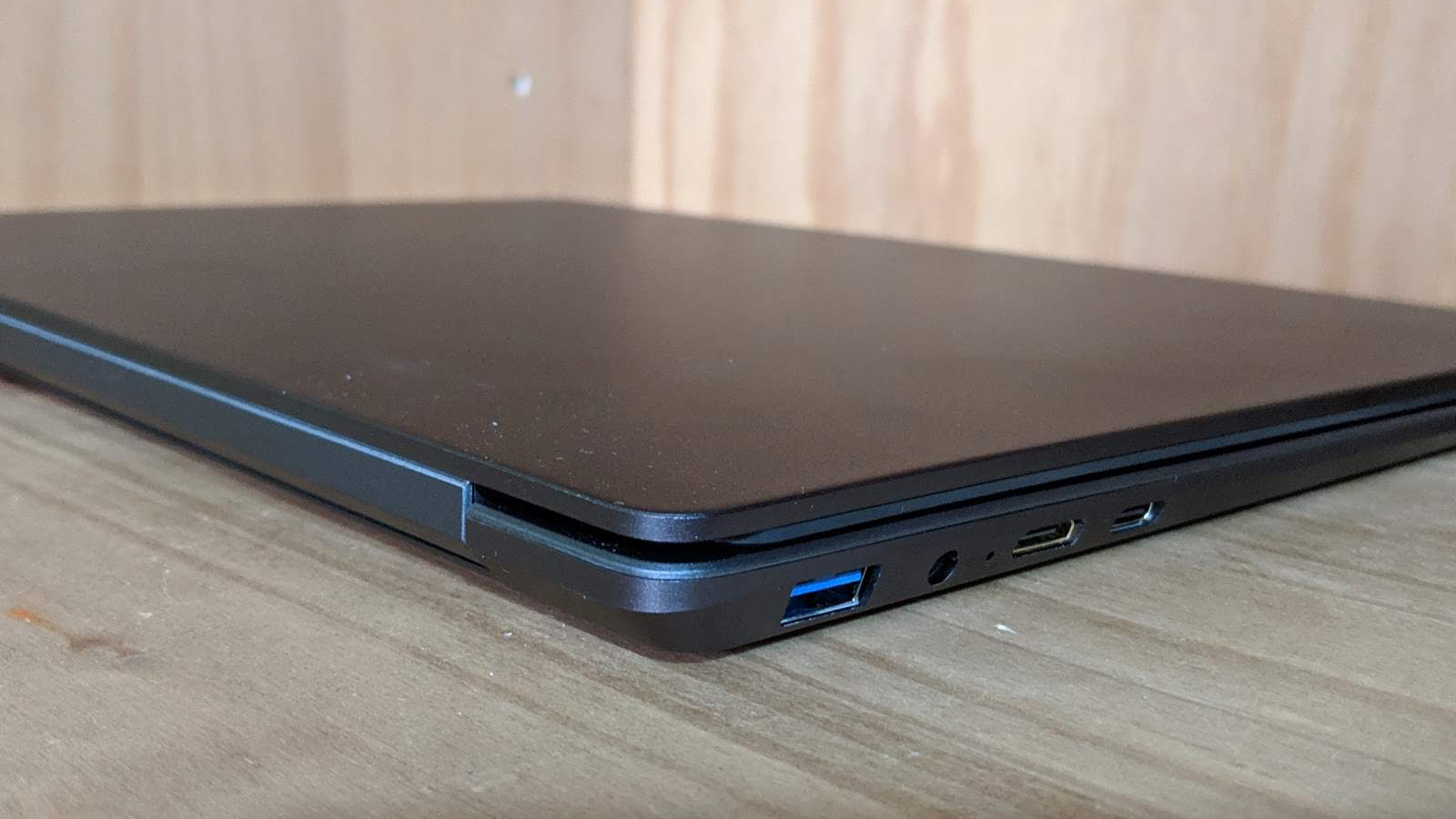TechRadar Verdict
The Chuwi Aerobook will appeal to those who want a Windows laptop with a sprinkle of MacBook DNA. It is keenly priced for what it offers and despite some minor niggles, this notebook will appeal to those looking for a bargain with a killer design.
Pros
- +
Very good performance for the price
- +
Surprisingly good battery life
- +
Silent
- +
Dual-channel memory configuration
Cons
- -
eMMC storage
- -
Spec of finished product is different to test sample
Why you can trust TechRadar
Chuwi was one of the first Chinese laptop (and desktop) manufacturers to jump on the crowdfunding bandwagon, a vehicle it has used successfully to raise millions of dollars to finance five separate products over the past two years.
The Aerobook is the latest offering to come out of its design labs and attempt to wow affluent buyers looking for a laptop that looks great, performs admirably, and doesn’t cost the earth.
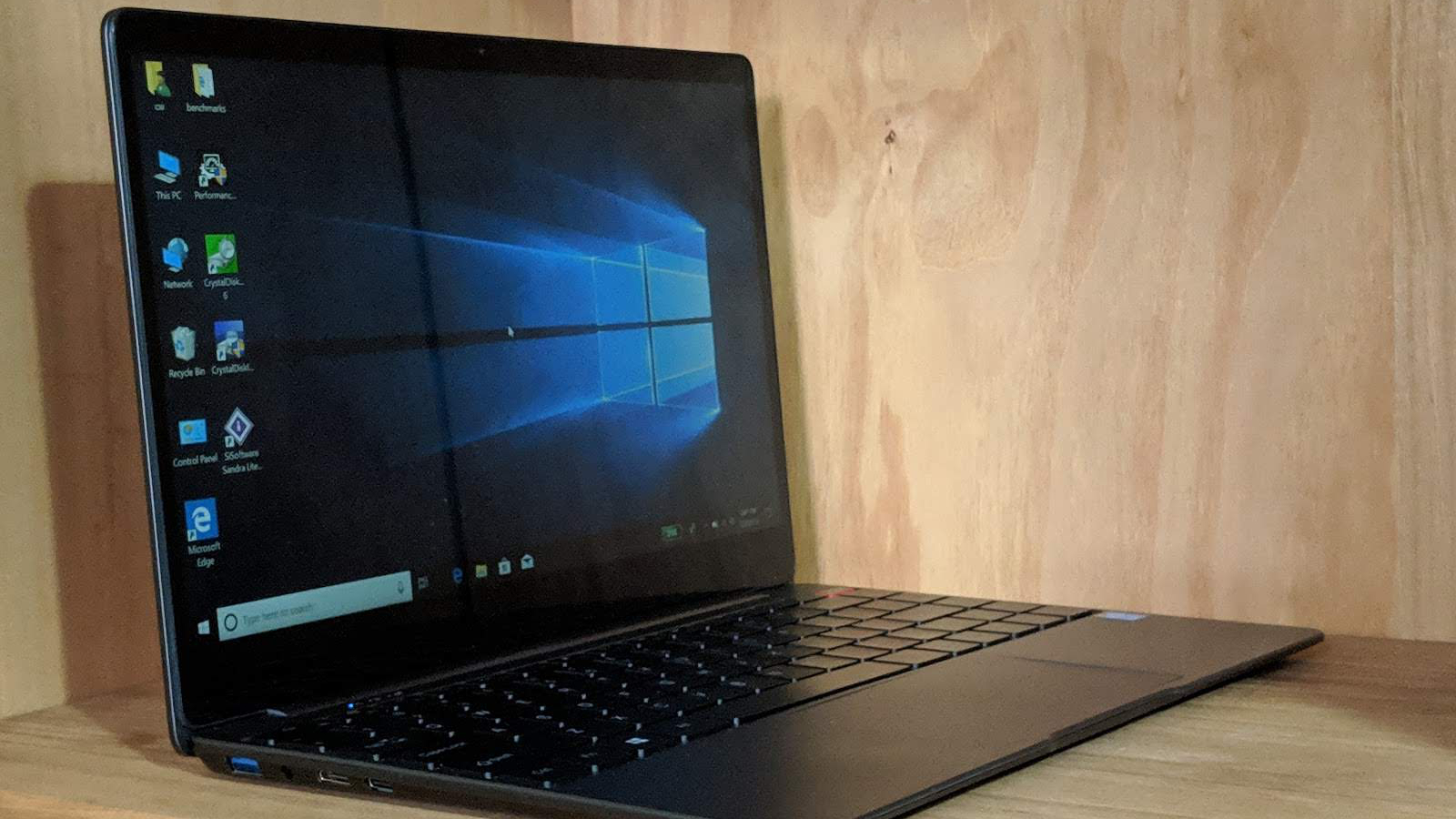
Online Chinese retailer, Aliexpress, sells the Chuwi Aerobook for just $450 at the time of writing. The sample itself was sent by Chuwi. Note that while this price includes delivery, it is exclusive of any taxes that may be levied by HMRC or the courier companies on behalf of the vendor. Want to buy tech from online Chinese retailers? Read this first.
Design
You can easily trace the design journey, as it were, that Chuwi’s team has carved out over the past three years: from the Chuwi Hi12, to the Hi13, the SurBook, the SurBook Mini, the LapBook 12.3, the Hi10, the LapBook Air, the LapBook SE, and the latest newcomer, the HeroBook. The process of evolution is clearly visible through these models, with Chuwi forging its own identity after numerous iterations.
The Aerobook embraces the brushed metal finish and space grey color scheme of the MacBook family, but without going to extremes to cut down on the dimensions. The laptop measures 310 x 209 x 16mm (at its thickest point) with a weight of 1.27kg; not as nimble as the Dell XPS 13, but still pretty impressive.
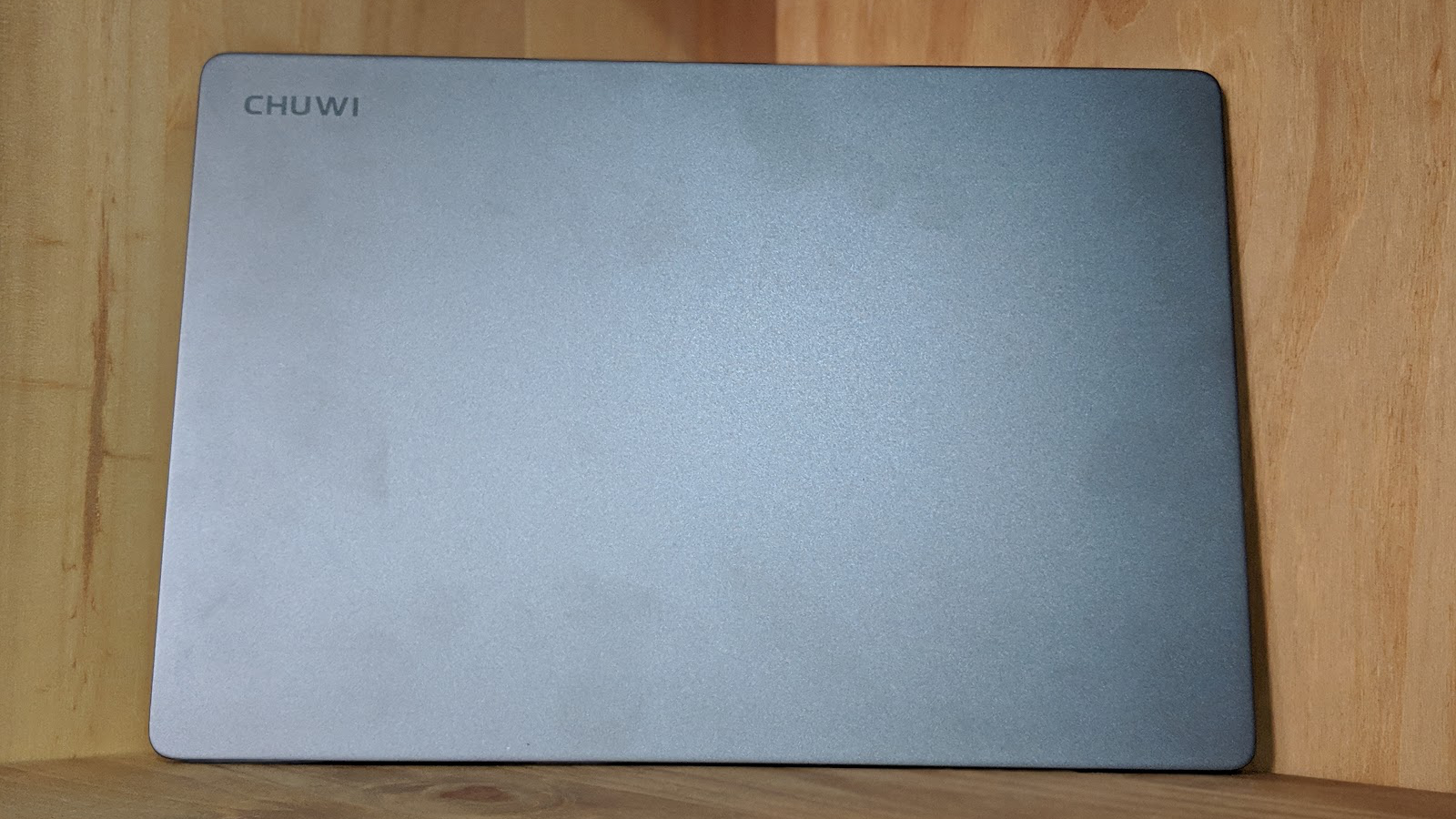
Having more space to play with allowed Chuwi to go big on connectors and expansion capabilities. There’s a removable cover that hides an M.2 slot, which is obviously great if you want to add more storage. Furthermore, there are two USB 3.0 ports, one USB Type-C connector, one microSD card slot, one mini-HDMI and one audio jack (but no Kensington lock here).
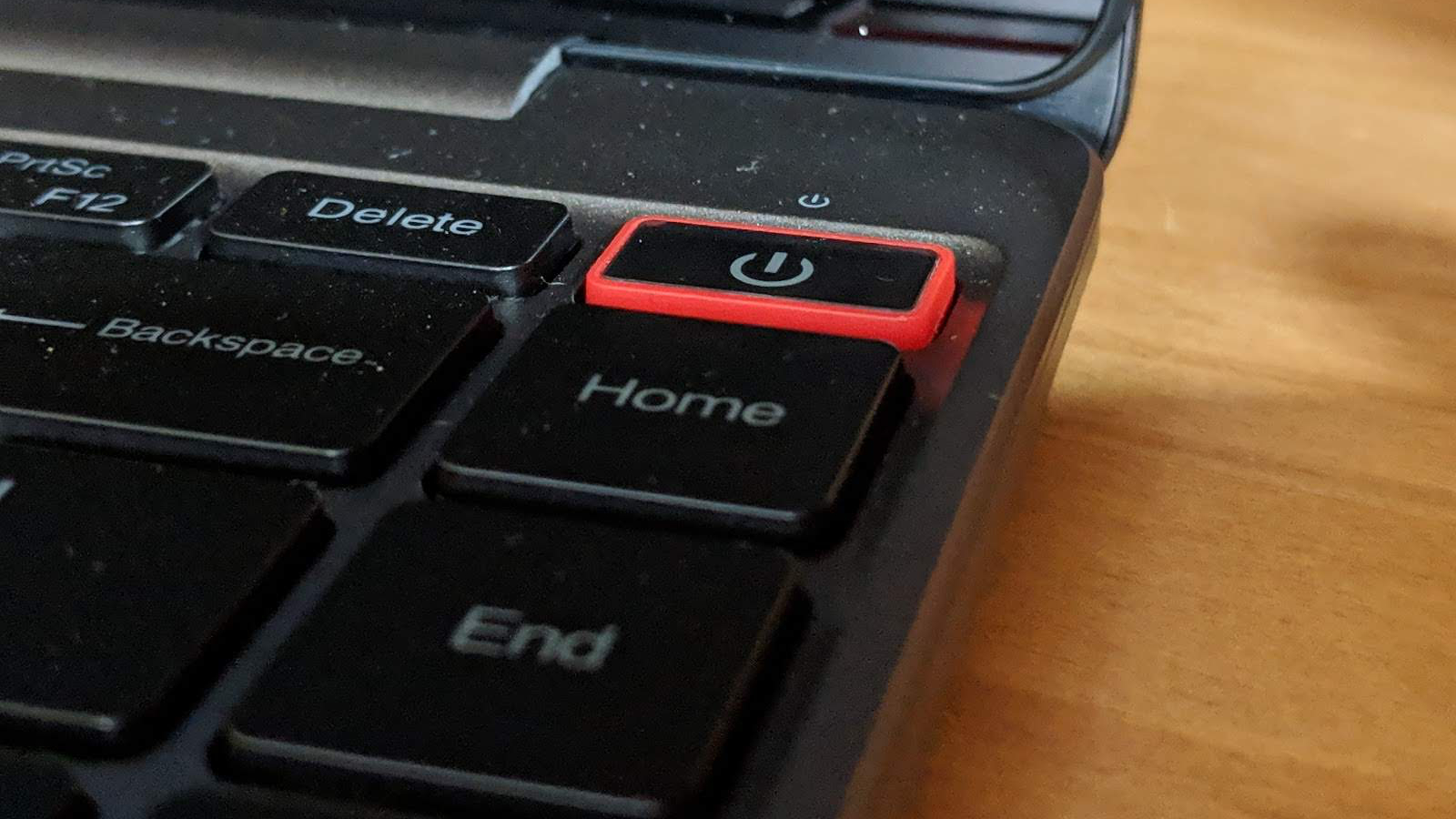
Note that the Type-C connector allows you to charge the laptop – which paves the way for some exciting possibilities – and Chuwi has judiciously added a proprietary port which is powered by a small brick power supply unit (12V, 2A).
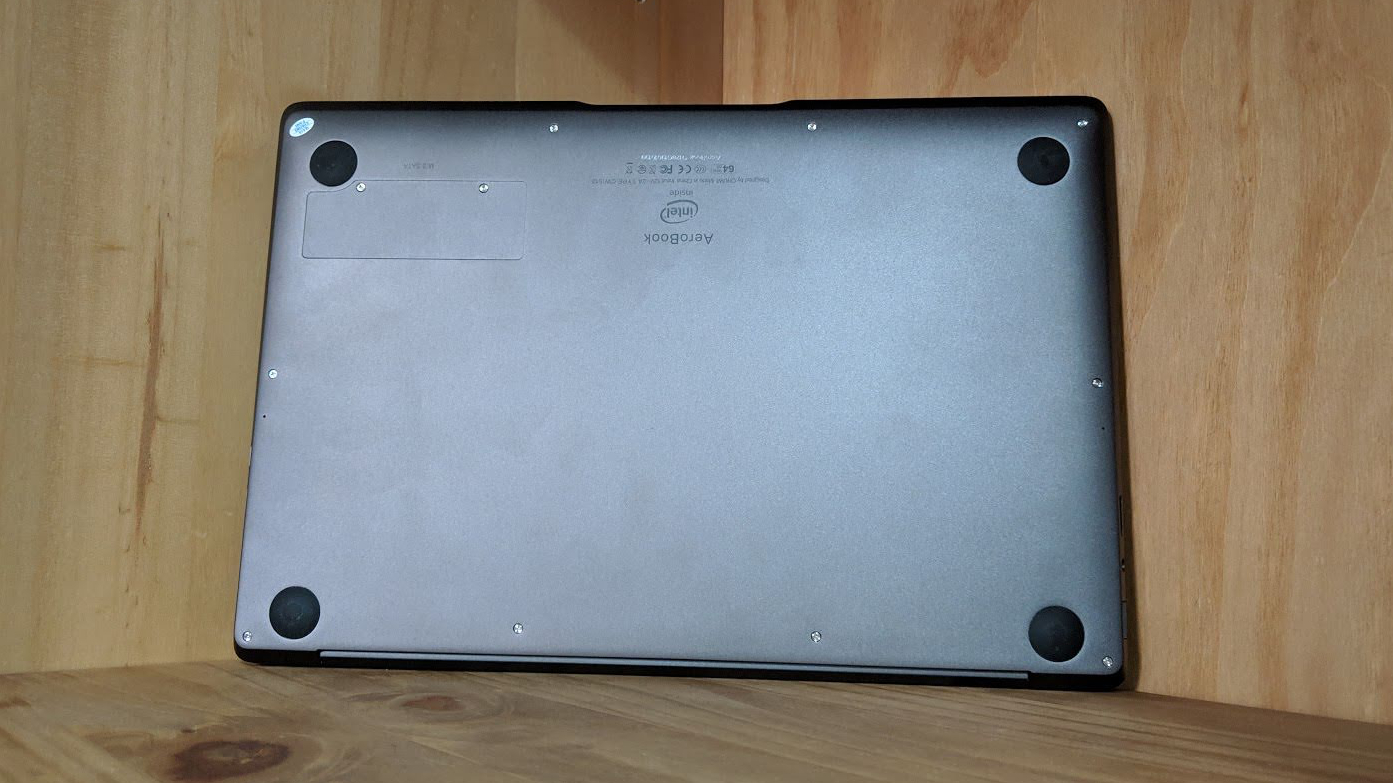
Flip the laptop over and you will notice a couple of things. First, there are four black, round rubber feet that elevate the notebook by a few millimeters, and then there’s the fact that there are no air vents. Indeed, the laptop is totally quiet in operation, even under load. It does warm up but the extra heat is rapidly dissipated thanks to the enormous heatsink that is the aluminum alloy shell.
Here is the Chuwi Aerobook configuration sent to TechRadar Pro for review:
CPU: Intel Core m3-6Y30 dual-core 900MHz (2.2GHz Turbo)
Graphics: Intel HD Graphics 515
RAM: 8GB
Screen: 13.3-inch 1,920 x 1,080 resolution
Storage: 128GB eMMC
Ports: 2 x USB 3.0, 1 x USB Type-C, audio jack, microSD card slot, mini-HDMI
Connectivity: 802.11ac Wi-Fi, Bluetooth 4.2
Weight: 1.27kg
Size: 310 x 209 x 16mm (W x D x H)
Battery: 38WHr
Specifications
Chuwi opted for an older processor for this product, the Intel Core m3-6Y30, a Skylake (6th-generation) 14nm dual-core processor. If that seems strange, remember that there are currently supply issues with Intel’s CPU stock, and doubtless this explains why Chuwi has been forced to fall back on a processor that’s four-years-old.
However, that doesn’t mean this Intel chip is slow – far from it, as we will see later. And with a TDP of 4.5W, it runs cooler and consumes less power than the likes of Intel’s Celeron N4100 – which should translate into a longer battery life. The downside is that the 6Y30 has older integrated graphics, and may struggle with applications that thrive on multi-core, as it has half the number of cores (two rather than four).
Choosing the 6Y30 processor had a knock-on effect on the memory – the Aerobook uses slower LPDDR3 RAM, rather than the faster, more energy-efficient DDR4. The flipside, though, is that it is configured in dual-channel mode which improves memory bandwidth.
Also note that Chuwi has changed the storage specs of the laptop a couple of times after hitting stretch goals on Indiegogo. The model sent to us for review had a 128GB drive with slower eMMC flash (the ubiquitous SanDisk DF4128).
The new model - on sale at other Chine retailers - will feature 128GB eMMC and a 128GB SSD. We are still surprised by the fact that vendors such as Chuwi choose to install the operating system on the slower drive, resulting in poorer all-round performance.
Connectivity-wise, you get 802.11ac Wi-Fi courtesy of an Intel 3165 chip which also provides Bluetooth 4.2.
All this is powered by a 38WHr battery with additional custom BIOS optimization from Chuwi engineers.
Here’s how the Chuwi Aerobook performed in our suite of benchmark tests:
Passmark: 1,526
Passmark CPU: 3,356
CPU-Z: 256 (single-thread); 583 (multi-thread)
Geekbench: 2,711 (single-core); 4,977 (multi-core); 19,591 (compute)
Cinebench CPU: 331
CrystalDiskMark: 149MBps (read); 92MBps (write)
Novabench: 723
Atto: 163MBps (read, 256mb); 106MBps (write, 256mb)
Windows Experience Index: 5.1
Performance and usage
Let’s cast any doubts aside: this laptop is far faster than any N4100-powered device we have tested yet, which shouldn’t come as a surprise. Most applications are fine-tuned for single-thread computing which explains why the m3-6Y30 processor did well on many of these benchmarks, but fell far behind N4100 devices (like the Teclast F7 Plus) on multi-threaded tests.
The 13.3-inch IPS Full HD display is glossy with very thin bezels (as small as 6mm) with a claimed screen-to-body ratio of 80%, as well as being “fully laminated”. It provides a decent color gamut and is bright enough for everyday usage, although it will struggle in bright daylight.
As for the keyboard, it is generous in proportion with slightly concave, backlit keys which have a good travel and excellent feedback. We wouldn’t object to using it for touch typing.
Chuwi chose to have a red border for the power button, which we’ve been told is a decision that was made to prevent users from accidentally shutting down their laptops. We encountered very little keyboard flex during our testing but your mileage may vary depending on your typing style, of course.
The touchpad is about the size of two credit cards and supports Windows 10 gesture control. It is smooth and quite sensitive, but our sample seemed to have a quality control issue, as one corner protruded just ever so slightly above the palm rest.
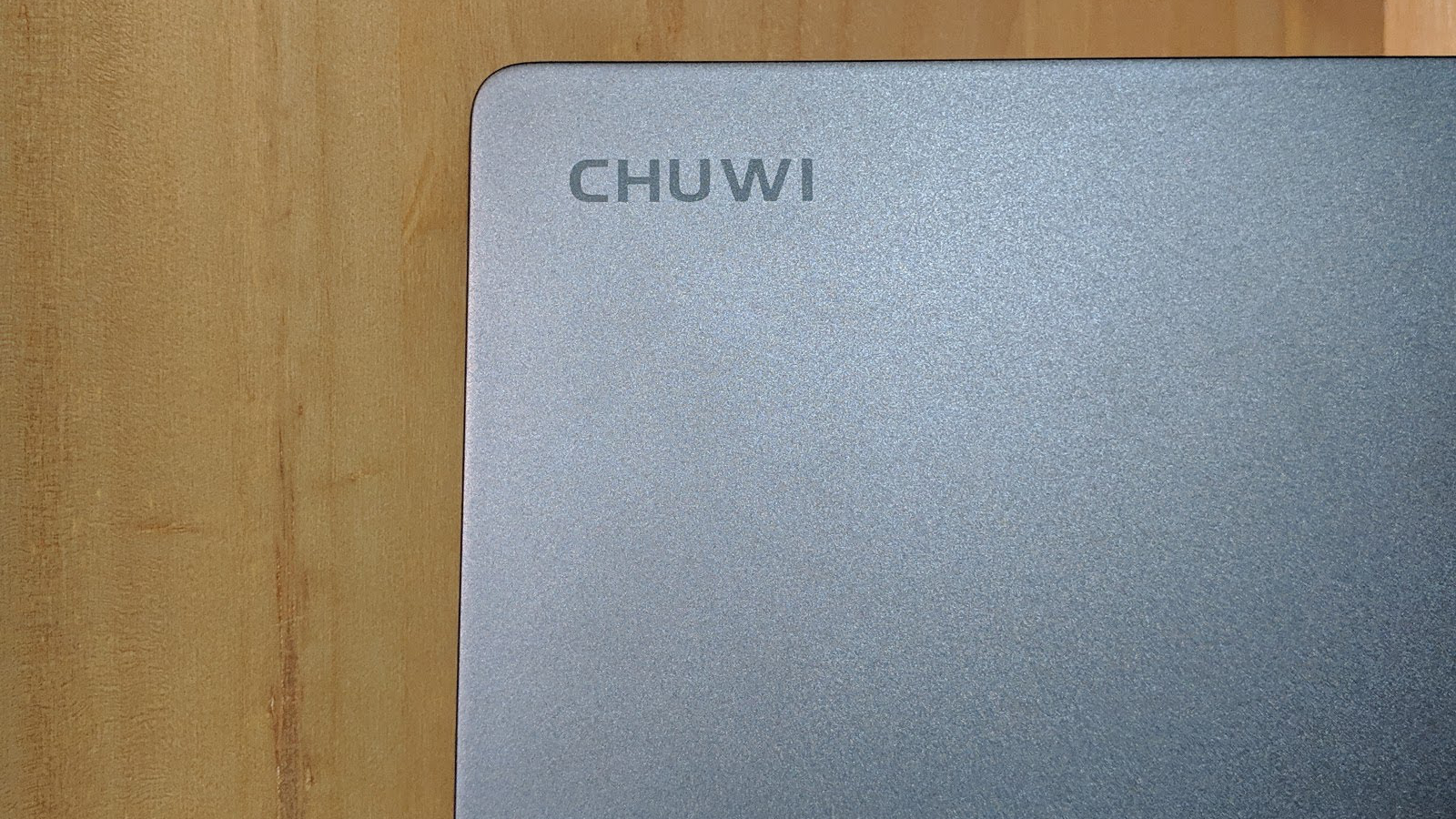
The competition
The retail price of the Aerobook will be around the $500 mark for the 256GB model – that’s a fair chunk of cash for what is essentially an unknown brand in the western world. So what sort of competition might this notebook have? A couple of models spring to mind.
Jumper has a follow-up to the EZBook X4 that we reviewed last year, and with a Pro moniker, you’d expect some fireworks. However, the truth is that it’s a mixed bag: it has four speakers, a backlit keyboard, a big touchpad and a design that’s reminiscent of the Xiaomi Mi Laptop Air. At $490, it is cheaper than the Aerobook, but comes with an older CPU – a Core i3-5005U. Ouch!
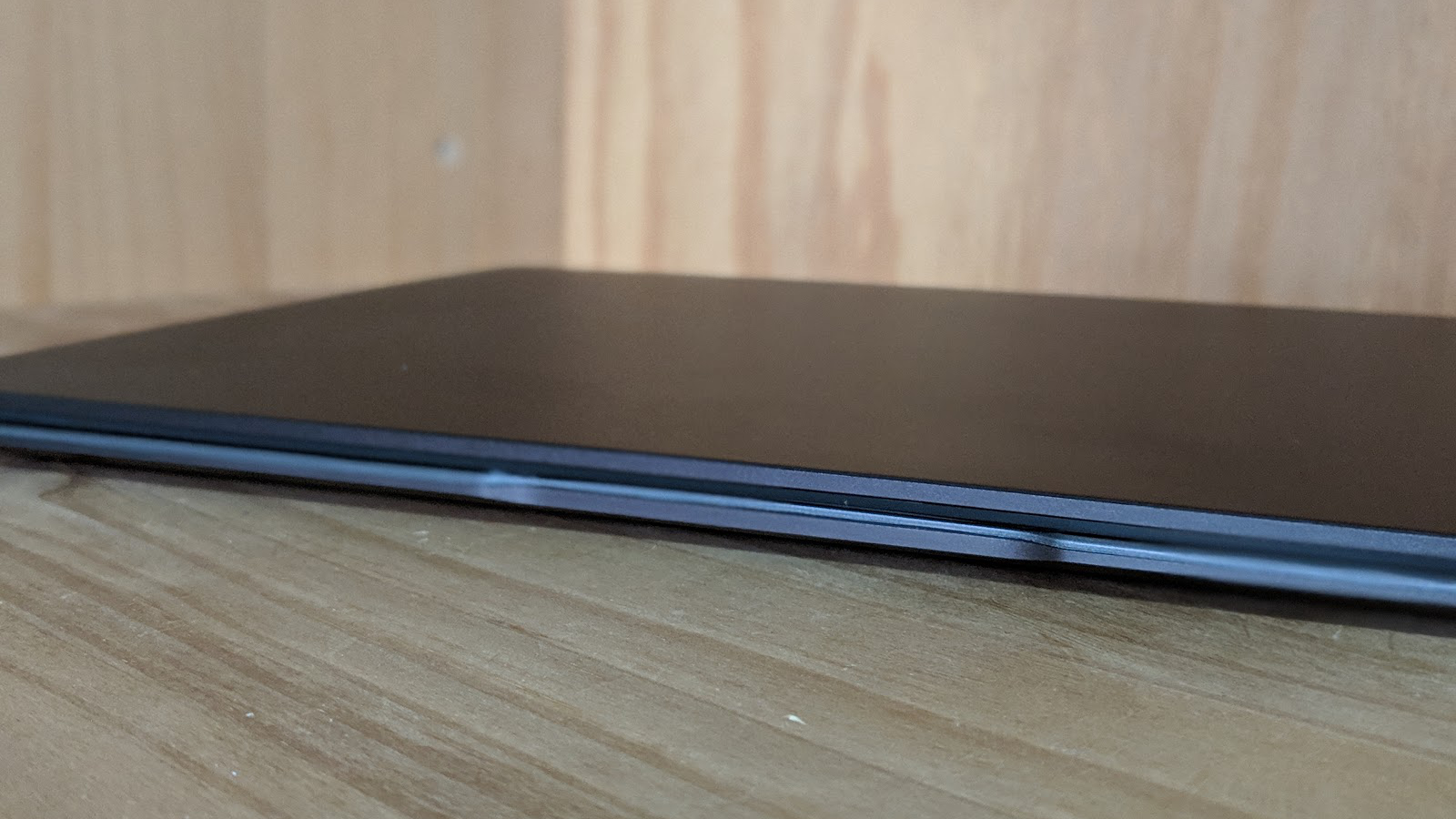
The Dell Inspiron 13 7375 2-in-1 laptop is far more expensive at $630, but thanks to regular promotions (the one at the time of writing is 15% off), you can get this machine for about $530. It’s equipped with a very fast Ryzen 5 2500U processor sporting one of the fastest integrated graphics ever produced, along with 8GB of DDR4 memory, 802.11ac Wi-Fi and a 45WHr battery. You only get a 128GB SSD, but that’s a good compromise given that there’s a 13.3-inch FHD touchscreen display.
Neither HP nor Lenovo had similar competitive deals – at the time of writing – to compete with the above, although there are a number of products pitched at the $600 price point.
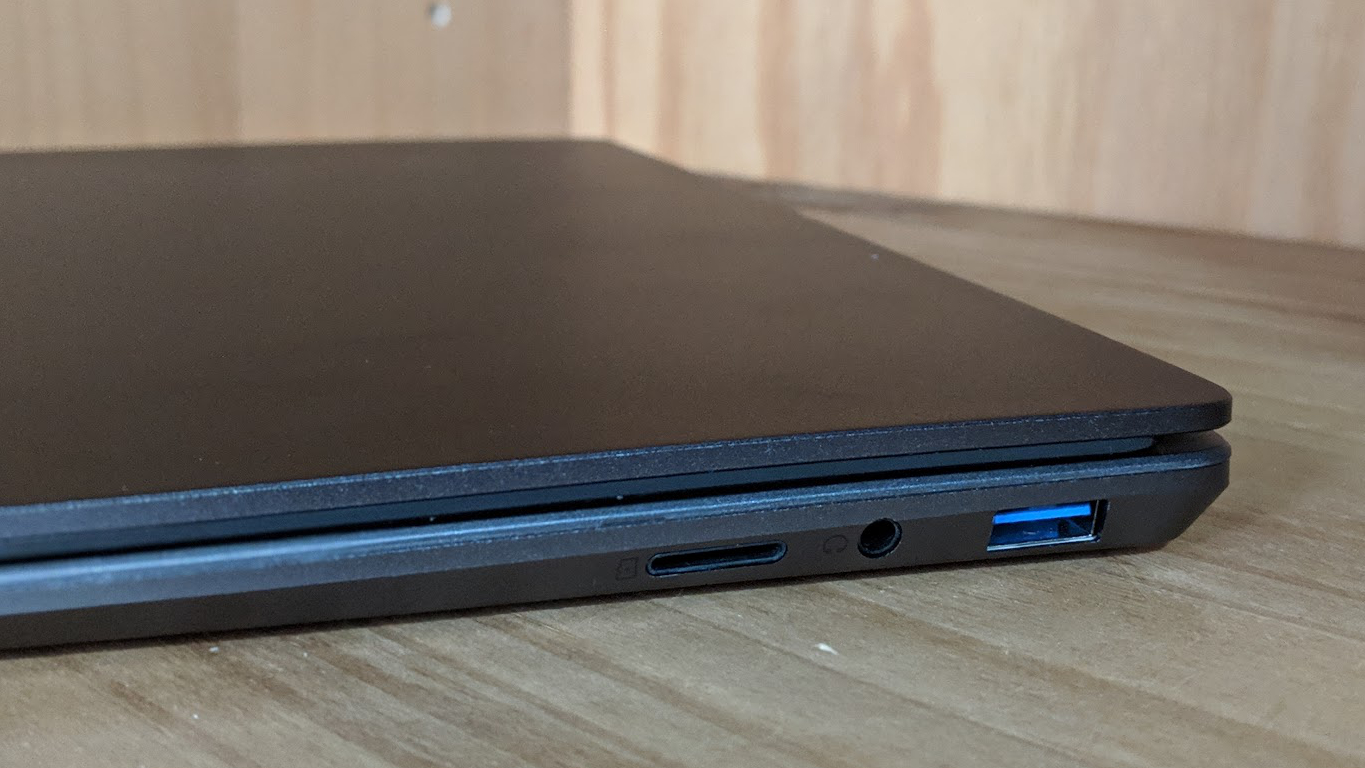
The business take
Chuwi killed the distracting and useless lit-up logo at the back and has embraced a subdued, low-key design instead, which will resonate well with a business audience keen on quality but not on flashiness. That said, businesses will have little impetus to buy the Aerobook when only slightly more expensive alternatives exist which don’t have to be bought from abroad.
Chuwi’s device is a great laptop – don’t get us wrong – but for SMB or SoHo purchasers, if something goes wrong with the machine, the thought of having to send the laptop back to mainland China – at their own expense, and without a replacement – might well be something few would want to contemplate.
Unlike cheaper models (like the $280 Chuwi Laptop SE), this notebook is not ‘disposable’ enough to warrant buying a pair, and keeping one in reserve, just in case.
- We’ve picked out the best business laptops of 2019

Désiré has been musing and writing about technology during a career spanning four decades. He dabbled in website builders and web hosting when DHTML and frames were in vogue and started narrating about the impact of technology on society just before the start of the Y2K hysteria at the turn of the last millennium.
